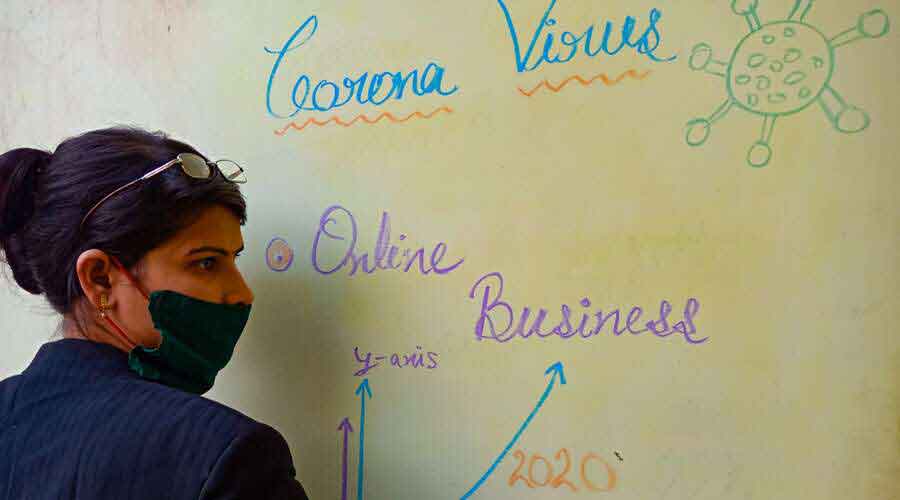The Haryana government has transferred from state universities to the Haryana Public Service Commission the responsibility of recruiting teachers and other varsity staff, drawing accusations of an attack on academic autonomy.
The state higher education department asked the vice-chancellors of 18 state government-funded universities on November 8 to amend their rules and shift to the new recruitment system.
Currently, the universities, set up by acts of legislature, are empowered to recruit their own staff. They usually advertise posts, set up expert panels and hold interviews.
Now, the Haryana Public Service Commission (HPSC), which holds exams for the administrative services, Haryana State Higher Education Council (HSHEC), a state government agency, and the higher education department will be the mainstay of recruitments.
The policy change comes at a time the conduct of recruitment exams by the HPSC has come under a cloud, with three of its officials arrested this week on bribery charges.
“The state government is taking recruitment from a better to a worse system. It’s an attack on the universities’ autonomy,” said R.K. Chauhan, former VC of Guru Jambheshwar University, Hisar, Haryana.
“The universities have largely appointed competent people. But the public service commission is facing charges of corruption.”
Bihar’s state universities have recruited teachers and staff through the public service commission since 1951, and through a university service commission since 1987. Since bifurcation, Jharkhand has followed a similar model.
In 2020, the Odisha government enacted a law outsourcing university recruitments to the state PSC, which has been challenged in Odisha High Court. Nowhere else in the country do state universities recruit through government agencies.
Former Patna University VC Rash Bihari Prasad Singh supported the Haryana government’s move.
“In the universities, there’s a lot of corruption in appointments. In Bihar, it (recruitment through government agencies) has performed well — there’s no corruption in recruitment,” Singh said.
However, Arun Kumar, an academic from Bihar, said the state universities had up to 55 per cent vacancies now.
“Recruitment by a public service commission or a university service commission is very slow. It takes about three to four years,” Kumar said.
Chauhan said the big issue was autonomy: “The best universities in the world recruit their own faculty members. The university faculty members are competent to judge the potential of candidates. Besides, each university’s requirements vary from another’s.”
Ashok Barman, a retired academic from Bengal, said the autonomy to recruit helps institutions fill posts faster.
“In Assam, even the colleges recruit their teachers and other staff. Vacancies in Assam are the lowest in the country. The universities should have the freedom to recruit,” he said.
From now on in Haryana, the HPSC will conduct tests to recruit assistant professors. The short-listed candidates will later be interviewed by a selection committee made up of the VC and subject experts nominated by the HPSC, HSHEC and the chancellor, who is the governor of the state.
If only interviews are held to recruit assistant professors, the HSHEC will work out a common marking criterion for all the state universities.
To recruit Group B staff, the universities will send requisitions to the HPSC which will conduct examinations and interviews. The Haryana Staff Selection Commission will hold the exams for Group C and D posts.
A search panel of the VC and experts nominated by the HPSC, HSHEC, state government and the university’s executive council will select candidates for registrar, finance officer, controller of examinations and librarian.










